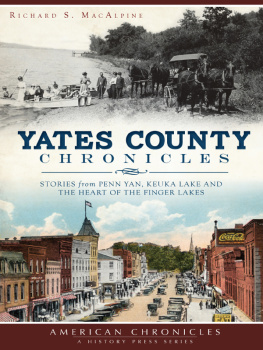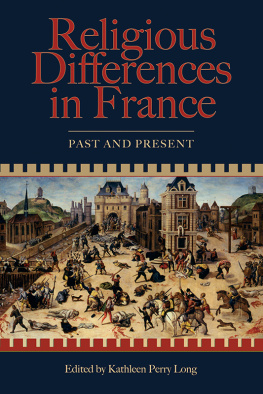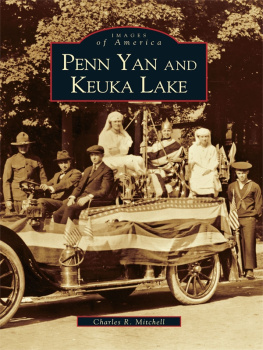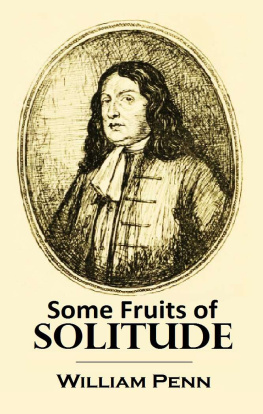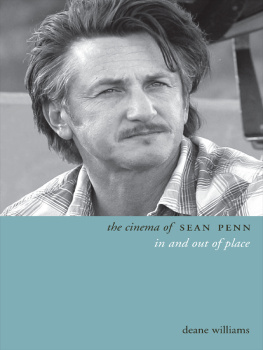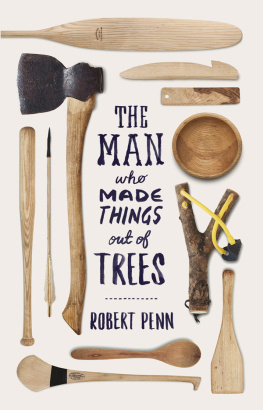Richard S. Dunn - The World Of William Penn
Here you can read online Richard S. Dunn - The World Of William Penn full text of the book (entire story) in english for free. Download pdf and epub, get meaning, cover and reviews about this ebook. year: 2015, publisher: University of Pennsylvania Press, Inc., genre: Art. Description of the work, (preface) as well as reviews are available. Best literature library LitArk.com created for fans of good reading and offers a wide selection of genres:
Romance novel
Science fiction
Adventure
Detective
Science
History
Home and family
Prose
Art
Politics
Computer
Non-fiction
Religion
Business
Children
Humor
Choose a favorite category and find really read worthwhile books. Enjoy immersion in the world of imagination, feel the emotions of the characters or learn something new for yourself, make an fascinating discovery.

- Book:The World Of William Penn
- Author:
- Publisher:University of Pennsylvania Press, Inc.
- Genre:
- Year:2015
- Rating:5 / 5
- Favourites:Add to favourites
- Your mark:
- 100
- 1
- 2
- 3
- 4
- 5
The World Of William Penn: summary, description and annotation
We offer to read an annotation, description, summary or preface (depends on what the author of the book "The World Of William Penn" wrote himself). If you haven't found the necessary information about the book — write in the comments, we will try to find it.
The World Of William Penn — read online for free the complete book (whole text) full work
Below is the text of the book, divided by pages. System saving the place of the last page read, allows you to conveniently read the book "The World Of William Penn" online for free, without having to search again every time where you left off. Put a bookmark, and you can go to the page where you finished reading at any time.
Font size:
Interval:
Bookmark:
The World of
WILLIAM PENN

edited by Richard S. Dunn
and Mary Maples Dunn

Preparation and publication of this volume has been assisted by the Philadelphia Center for Early American Studies
Copyright 1986 by the University of Pennsylvania Press
All rights reserved
Library of Congress Cataloging-in-Publication Data
The World of William Penn
Bibliography: p.
Includes index.
1. Penn, William, 16441718. 2. PennsylvaniaHistoryColonial period, ca. 16001775. 3. QuakersPennsylvaniaHistory. 4. PioneersPennsylvaniaBiography. 5. QuakersPennsylvaniaBiography. 6. QuakersEnglandHistory17th century. I. Dunn, Richard S. II. Dunn, Mary Maples.
F152.2.W65 1986 974.8020924 [B] 866970
ISBN 0-8122-8020-2
Designed by Adrianne Onderdonk Dudden
To our fellow editors of
The Papers of William Penn:
Edwin Bronner
David Fraser
Alison Hirsch
Craig Horle
Richard Ryerson
Jean Soderlund
Scott Wilds
Joy Wiltenburg
Marianne Wokeck
MARY MAPLES DUNN
HUGH BARBOUR
RICHARD S. DUNN
J. R. JONES
CAROLINE ROBBINS
JOAN THIRSK
CAROLE SHAMMAS
MICHAEL J. GALGANO
NICHOLAS CANNY
RICHARD T. VANN
STEPHEN SAUNDERS WEBB
FRANCIS JENNINGS
BARRY LEVY
NED LANDSMAN
MARIANNE S. WOKECK
MELVIN B. ENDY, JR.
J. WILLIAM FROST
EDWIN B. BRONNER
GARY B. NASH
JACOB M. PRICE
APS
American Philosophical Society, Philadelphia
BL
British Library, London
CCRO
Chester County Record Office, Chester, England
CSPD
Anne Everett Green, et al, eds., Calendar of State Papers, Domestic Series, 16031704, 85 vols. (London, 1857-1972).
CUCRO
Cumbria County Record Office, Carlisle, Cumbria, England
DNB
Leslie Stephen and Sidney Lee, eds., Dictionary of National Biography, 63 vols., plus supplements (New York and London, 1885-1900)
FLL
Library of the Religious Society of Friends, London
GSP
Genealogical Society of Pennsylvania, Philadelphia
HCL
Haverford College Library, Haverford, Pennsylvania
HMC
Historical Manuscripts Commission
HSP
Historical Society of Pennsylvania, Philadelphia
JFHS
Journal of the Friends Historical Society (London)
LCRO
Lancashire County Record Office, Preston, Lancashire, England
Micro.
The Papers of William Penn, Microfilm edition, Historical Society of Pennsylvania (1975), fourteen reels plus guide. References are to reel and frame
Minutes of the Provincial Council
Minutes of the Provincial Council of Pennsylvania (Philadelphia, 1852)
NLW
National Library of Wales, Aberystwyth, Cardiganshire, Wales
NNRO
Norfolk and Norwich Record Office, Norwich, Norfolk, England
PA
Samuel Hazard, et al, eds., Pennsylvania Archives (Philadelphia and Harrisburg, 1852 )
Penn, Select Works
William Penn, Select Works, 4th ed., 3 vols. (London, 1825; reprint, New York, 1971)
Penn, Works
[Joseph Besse, ed.], A Collection of the Works of William Penn, 2 vols. (London, 1726; reprint, New York, 1974)
PMHB
Pennsylvania Magazine of History and Biography
PRO
Public Record Office, London
PWP
Mary Maples Dunn and Richard S. Dunn, eds., The Papers of William Penn (Philadelphia, 1981 ); multivolume series in progress
TCD
Trinity College Library, Dublin
Thirsk, Agrarian History, 4
H. P. R. Finberg, ed., The Agrarian History of England and Wales, vol. 4, 1500-1640, ed. Joan Thirsk (Cambridge, 1967)
Thirsk, Agrarian History, 5
H. P. R. Finberg, ed., The Agrarian History of England and Wales, vol. 5, pt. I, 16401750, ed. Joan Thirsk (Cambridge, 1984); vol. 5, pt. II, 16401750, ed. Joan Thirsk (Cambridge, 1985).
Tolles, Meeting House
Frederick B. Tolles, Meeting House and Counting House: The Quaker Merchants of Colonial Philadelphia, 16821763 (Chapel Hill, N. C., 1948)
Vann, Development of Quakerism
Richard Vann, The Social Development of English Quakerism, 16551755 (Cambridge, Mass., 1969)
WCRO
Westmorland County Record Office, Kendal, Eng.
WMQ
William and Mary Quarterly
William Penn was incontestably one of the seminal figures of the late seventeenth century. He played a crucial role in protecting and sustaining the Quaker movement during its worst period of persecution; he was a major writer of religious, political, and didactic treatises; he championed religious toleration, civil rights, participatory government, interracial brotherhood, and international peace at a time when all of these noble causes were thoroughly unpopular; he participated conspicuously in English public life, parading his heterodox opinions for four decades; and he founded a thriving colony, arguably the most successful colony in America. Yet Penn has never been an easy person to understand or appreciate. Partly this is because he combined so many seemingly contradictory attibutes: he was at one time or another a rebellious son, a doting parent, a persecuted martyr, a deferential courtier, a religious enthusiast, a political lobbyist, a patrician gentleman, a weighty Friend, a polemical disputant, a sententious moralist, a shrewd entrepreneur, an improvident spendthrift, a visionary idealist, and an absentee landlord. Penns Quakerism has generally mystified or irritated the secular-minded observers of his career. Penns close association with the autocratic and impolitic James II has sullied his credentials as a political liberal. And Penns sojourn in debtors prison has raised embarrassing doubts about his basic competence and practical sense.
There are other obstacles to understanding this man. He was truly a hybrid Anglo-American, the only major actor on the seventeenth-century colonial scene whose achievements in the Old World were approximately equivalent in significance to his achievements in the New World. Penns counterparts in Massachusetts such as John Winthrop and John Cotton, or in Virginia such as Captain John Smith and Sir William Berkeley, had very peripheral careers in England by comparison. And none of the other lords proprietor who founded colonies in the New World, nor the royal governors who came over to represent the crown, had anything like his personal impact in America. This means that the historian must take a transatlantic view of William Penn and follow his activities on both sides of the ocean, for his successes and failures in England and in America were always closely interrelated.
Furthermore, Penns milieu was exceptionally wide and variegated, and his circle of acquaintance was very large. He lived simultaneously in a Quaker world and in a non-Quaker world, and he knew personally many hundred people in both worlds. He preferred the country to the city, but spent much of his life in London, Bristol, Dublin, and Philadelphia. He was a south-of-England man, but journeyed a number of times to the dark corners of northern Britain, where many Quakers lived. He made four long visits to Ireland and lived nearly a decade there altogether, more than twice the time he spent in Pennsylvania. He made several lengthy trips to France, Holland, and Germany. All of these travels are important in understanding his career, for Penns experiences in the various regions of the British Isles and in Europe all helped to shape his actions as a colonizer in America. Thus anyone who studies this extraordinarily energetic man needs to recreate the multifaceted seventeenth-century environment in which he lived and worked.
Next pageFont size:
Interval:
Bookmark:
Similar books «The World Of William Penn»
Look at similar books to The World Of William Penn. We have selected literature similar in name and meaning in the hope of providing readers with more options to find new, interesting, not yet read works.
Discussion, reviews of the book The World Of William Penn and just readers' own opinions. Leave your comments, write what you think about the work, its meaning or the main characters. Specify what exactly you liked and what you didn't like, and why you think so.

